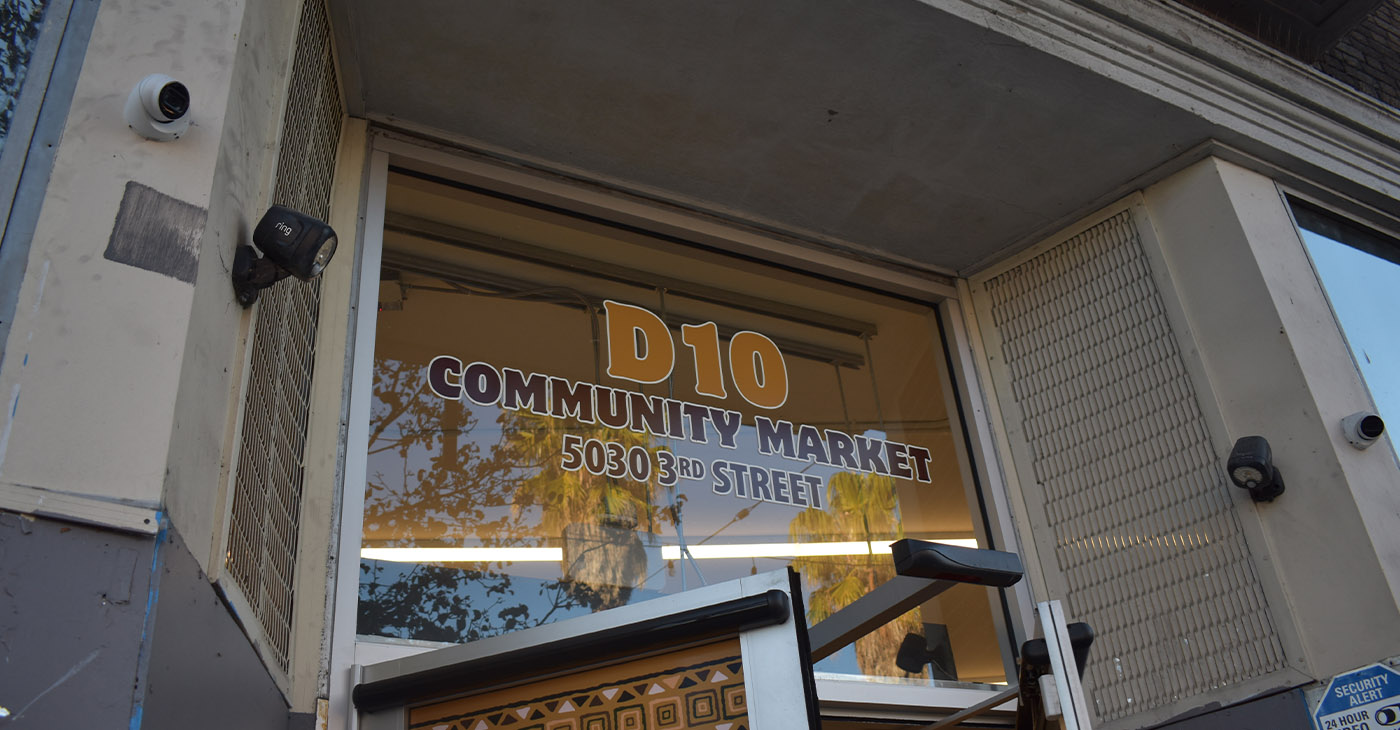Food
RBW PH Group holds 3rd Her Life, Our Legacy Jazz Brunch
NASHVILLE PRIDE — Roberta Baines Wheeler (RBW) Pulmonary Hypertension (PH) Awareness Group hosted its 3rd Annual “RBW Her Life Our Legacy Jazz Brunch” honoring mothers who are gone but not forgotten. With standing room only and a view overlooking downtown Nashville, over 150 people were in attendance on Saturday, May 18, 2019 at the event held at Waller Firm. The program honored mothers who have transitioned, increased awareness of pulmonary hypertension, and recognized KYB Leadership Academy.
By Cass Teague
Roberta Baines Wheeler (RBW) Pulmonary Hypertension (PH) Awareness Group hosted its 3rd Annual “RBW Her Life Our Legacy Jazz Brunch” honoring mothers who are gone but not forgotten. With standing room only and a view overlooking downtown Nashville, over 150 people were in attendance on Saturday, May 18, 2019 at the event held at Waller Firm. The program honored mothers who have transitioned, increased awareness of pulmonary hypertension, and recognized KYB Leadership Academy.
The program began with the Have You Heard Dance Troop (dancers Keivonte Newbell and Valencia Thompson) and Welcome by Sydney Y. K. Brown (granddaughter of the late Roberta Baines-Wheeler). Greetings followed by Metro Councilwoman at Large Erica Gilmore, whose daughter is alum of KYB Leadership Academy, the leadership development program sponsored by RBW PH Awareness Group. The event host, introduced by Scott Wallace, was Harriet Vaughn Wallace (Fox 17 news), and the Mistress of Ceremonies for the white rose ceremony was Toni Fitzgerald.
Attendees enjoyed delicious food prepared by Chef Irving Brown II of The GoodLife Personal Chef Service, including scrambled eggs with sautéed spinach & three cheeses, smoked diced new potatoes, seasoned sweet potato wedges, maple turkey sausage, bow tie pasta salad, and Romaine Arugula salad with assorted cherry tomatoes & feta cheese.
The first keynote speaker, Lueatrice Green Lovett, introduced by brunch committee chair Lillian Whitehead, gave profound words of inspiration and encouragement. Mrs. Stefanie Rome, First Lady of Fisk University, introduced the second keynote speaker, Dr. Reginald L. Robinson, a cardiologist who educated the audience on pulmonary hypertension and the importance of a healthy life.
RBW PH Awareness Group Executive Director Dr. Katherine Y. Brown thanked community partners and shared accomplishments of RBW PH Awareness Group. Irving D. Brown III (grandson of the late Ms. Wheeler) presented Mrs. Rome with the 2019 KYB Leadership Academy Outstanding Parent of the Year Award.
Dr. Brown recognized participants beginning the 10th Cohort of KYB Leadership Academy; graduating seniors, including Irving D. Brown III (who will attend Fisk University); Ms. Katelyn Starks; participants from the first school-based programs of KYB Leadership Academy at Head Middle Magnet School in Nashville TN and at J.F. Shields School in Beatrice, Alabama. Over 20 KYB Leadership Academy alumni (wearing the official KYB Blazer) served as hostesses. Dr. Tonja Williams was recognized for her commitment to KYB Leadership Academy.
The RBW Her Life, Our Legacy Jazz Brunch is held Saturday after Mother’s Day celebrating the lives of mothers who have passed and developing a healthy community of shared experiences. Brown explained,
“We not only celebrate their lives, we honor their legacy by doing great things in our community,” said Dr. Brown. “With awareness, empowerment, and hope working together we can make a difference.”
Community leaders, elected officials, dignitaries, and families filled the room, with floral arrangements by event florist George Ridley and music by Geary Moore, with a concluding video presentation by Dr. Brown. For more, email RBWPHGroup@gmail.com; phone 629-999-1909, or visit www.fightph.com.
This article originally appeared in the Nashville Pride.
Activism
Oakland’s Most Vulnerable Neighborhoods Are Struggling to Eat and Stay Healthy
For this story, we focused on eight of the 12 ZIP codes in Oakland, those pertaining to East and West Oakland. The ZIP codes include 94601, 94603, 94505, 94606, 94607, 94612, 94619, and 94621. We chose to concentrate on these specific areas, known as the Oakland Flatlands, due to its longstanding history of extremely low-income households and racial inequalities compared to ZIP codes in the Oakland Hills.

These Are the Contributing Factors
By Magaly Muñoz
On a recent trip to the grocery store in West Oakland, single mom Neemaka Tucker contemplated what’s more important to her family’s needs – expensive fresh produce or cheap instant ramen noodles.
“I’m trying to teach my kids to eat healthy, but then my pocket is like, ‘I’m broke’. Getting the processed foods is going to fill you up faster, even though it’s not good for your body,” Tucker said.
Bay Area residents are spending over $100 more a month on groceries than they were pre-pandemic. Those higher costs are straining wallets and forcing families to choose cheap over healthy, possibly contributing to more health problems. These problems are disproportionately affecting people in East and West Oakland, in neighborhoods primarily of low-income families of color.
Oakland residents are experiencing more health problems linked to poor diets, like diabetes, obesity, and heart disease than before the pandemic, particularly in neighborhoods of East and West Oakland, data shows.
“We see a direct relationship between what we eat and medical problems. What we eat affects our weight, our blood pressure and all those things circle back and have an effect on your diseased state,” said Dr. Walter Acuña, a family physician at Oakland Kaiser Medical.
According to data by UCLA Center for Health Policy Research, about 1 in 10 adults in East Oakland neighborhoods experience food insecurity. That’s twice as many people than in most other parts of the city.
Oakland residents’ health concerns are growing
For this story, we focused on eight of the 12 ZIP codes in Oakland, those pertaining to East and West Oakland. The ZIP codes include 94601, 94603, 94505, 94606, 94607, 94612, 94619, and 94621. We chose to concentrate on these specific areas, known as the Oakland Flatlands, due to its longstanding history of extremely low-income households and racial inequalities compared to ZIP codes in the Oakland Hills.
According to UCLA research, about one out of every five adults under 65 in these areas of East Oakland reported poor or fair health. But these problems weren’t isolated to East Oakland. About one in six adults under 65 reported poor or fair health in areas of West Oakland, like the 94607 ZIP codes.
A handful of ZIP codes (94601, 94603, 94605, 94621) in East Oakland also have the poorest health outcomes of any area in the city. Residents there experience the highest rates of obesity and adult diabetes.
UCLA data shows that there has been a two percent increase in the number of adults diagnosed with diabetes in West Oakland (ZIP code 94607) since 2017- 2018. An estimated 11.8% of adults in 94607 in 2021-22 said they had diabetes, whereas 9.8% reported it several years before.
But the problem is more significant, only a few miles away.
In the 94621 neighborhood in East Oakland, an estimated 16.6% of adult residents reported having diabetes in 2021-2022, and the neighboring ZIPs averaged about 15%, according to UCLA data. 2017-2018 data show that only 11% reported a diabetes diagnosis in the 94621, a 5.6% change from recent numbers. The ZIP code estimates are higher than the states’, county’s, and city estimates—11%, 12.4%, and 12.3%, respectively.
Doctors working with Oakland and the larger Alameda County area are seeing an increase in the number of people coming to their offices with chronic health issues in the last few years.
Acuña said he’s frequently treating more and more adults with diabetes and hypertension.
Patients often tell him that it’s easier to afford unhealthy, cheap food than it is to afford the things that are going to make them feel better and stay healthy, he said
Dr. Steven Chen, Chief Medical Officer of Alameda County’s Recipe4Health, said that he’s seeing more kids across the region suffering from obesity, or adults on the brink of developing chronic illnesses, than in previous years.
“Chronic disease is a big epidemic. What’s the root of it? I think food is a big component,” Chen said.
He has seen evidence of improved health when people have access to better food. People with Type 2 diabetes experience a boost in metabolic and sugar management to healthy levels, and those with high blood pressures experience normal numbers.
Recipe4Health is a county-wide program that uses food-based interventions to treat and prevent chronic conditions, address food insecurity, and improve health and racial equity. The program provides up to 12 weeks of groceries for people who are at risk or are experiencing food insecurity.
It’s important for public sectors to have these kinds of investments locally because the results are tangible, he said.
“If our values are that no one gets left behind and that everyone should have an equal opportunity to health and health equity, then we need always to ensure that we are serving those communities that often are left behind,” Chen said.
Experiencing food insecurity in Oakland
Unfortunately, healthy food is becoming increasingly difficult for Oakland residents to access. Over the last five months, The Oakland Post heard from over 50 residents about their struggles finding and affording healthy food. We visited food banks, talked with people at markets and food distribution events, and distributed an online survey.
We learned that residents are travelling to other nearby cities to get cheaper groceries, financial assistance programs like CalFresh are challenging to navigate, wages are low, and food is getting more expensive while the quality appears to be dropping.
Andres, who asked us not to use his last name due to his undocumented status, said he often relies on food distribution from organizations like the Street Level Health Project for his weekly groceries. He wouldn’t be able to eat complete meals otherwise, due to the lack of consistent employment at his car washing job during the winter months.
With eight people living under one roof and only three adults contributing to the household income, he said things are tight.
“During these months, we’re always backed up on paying our bills, including rent, and we’re trying to do more with what little that we have, which is not much,” Andres said.
Andres’ biggest complaint about grocery shopping is the lack of fresh and healthy food that is affordable and good quality. He’s been to food banks and grocery stores where the produce rots within a day or two of receiving it, forcing him to buy fast food in order to feed his family.
Down the street at the Unity Council’s weekly grocery distribution, Mayra Segovia, a single woman in her 50s, said she visits this location almost every week to get food. Her fixed income on Social Security makes it difficult to afford her basic necessities.
Segovia said she receives CalFresh funding to pay for her groceries, but the almost $300 assistance is not enough to get her through the month, so she gets creative. She often does favors for local vendors in exchange for meals. Even with the Social Security checks of a little over $1,000 a month and other resources like subsidized housing, the cost of living is going up. She’s blaming the government for their contribution to the problem.
“We’re not all rich like Donald Trump and all those corrupt politicians, we don’t have that much money like that,” Segovia said.
Social service assistance is falling short
Several people we spoke with said financial food assistance like CalFresh isn’t supplementing the gaps in their budgets.
Neemaka Tucker, mom of two elementary-aged kids, said she receives $123 a month from CalFresh, yet she’s spending almost $600 on groceries at the store. She feels like she should be getting more assistance, especially considering her lower, single income. “I’m appreciative [of the CalFresh funds] that I get anything because every little bit helps, but it’s still not enough for my family,” Tucker said.
A lack of grocery store options in West Oakland has also made it even harder to get food on the table, Tucker said.
There are more convenience stores than grocery stores within walking distance to her home on the northeast side of West Oakland, and the prices seem to be exacerbated because of their limited food stock, Tucker said. A gallon of milk at the store could run her up to $3.80, but at the local convenience market, it’s nearly $6.
“I just find that the majority of the money that I’m spending is on the travel to get the food, then on the food itself,” Tucker said.
Healthy groceries are a necessity to manage Tucker’s health. She is diabetic and has high blood pressure, so eating and buying fresh produce is important because keeping her symptoms at bay is a must for her health. It’s been difficult to get what she needs for her body to maintain her chronic health problems because she often battles with lack of affordability of what she’s buying, she said.
“I find myself trying to figure out what’s healthy for each person and then have enough of it so we all can [eat well],” Tucker said. “Back in the day, bread and potatoes used to be staples to get your kids full, but food like that makes me sick because that’s too much [carbohydrates] since I have diabetes.”
Both her kids are athletes who also need healthy food. She’s finding that even though her kids don’t eat meat, which tends to be expensive, she’s still spending more than she’d like to on fruit and vegetables.
In Oakland, the local investment is low
In the last year, the city has cut grants to nonprofits like Meals on Wheels, which serves 3,000 hungry seniors, and Street Level Health Project, which provides groceries and meals to undocumented day laborers. Tax measures, like the Sugar-Sweetened Beverage Tax, were intended to help decrease the food and health crisis but are also not being managed in the way Oakland residents voted for, according to community leaders and advisory board members. The majority of the tax money is going towards funding city agencies.
The Oakland Post contacted city and county officials several times for comment but did not get a response.
Across the Bay Area, San Francisco is investing millions to address food insecurity through a pilot program that establishes free grocery stores in food desert districts. Shoppers of the pilot market said they have seen a positive change to the way they feed their families and how much they’re able to save every month.
Oakland resident PC, who chose to use an abbreviated version of his name to protect his privacy, said he’d be interested in seeing a market like the one in San Francisco because it would alleviate the tight budget he has for himself.
PC said he’s had some unpleasant experiences with food distribution workers being rude to residents waiting for grocery bags. “The line is already long as it is and can sometimes feel shameful when you’re going through hard times,” PC said, so an option to get free food in a setting that resembles a market would be ideal.
The garden lead for West Oakland’s People’s Programs, ab banks, helps deliver fresh produce from a local garden to households in the projects, because the need for healthier options has been particularly high in recent years, they said.
People’s Program serves around 170 people in the 94607 area with groceries, along with a mobile health clinic and free breakfast program. Their goal is to serve a community that already deals with its own set of disadvantages, and looks to show people that not everything needs to contribute to a bigger gain and people have the right to use the local land to grow the food they need.
Banks said they see firsthand what the lack of investment in West Oakland has done to folks: homelessness, priced out living situations, environmental racism, and lack of food access.
They explained that although they feel a duty and a calling to the work at People’s Program to help an underserved neighborhood, they questioned how the city is pouring millions of dollars towards finding solutions to Oakland’s biggest problems but no significant change has happened yet. banks said there are basic necessities that should be birthrights and not restricted to what the government thinks people need.
“[The investment] is not enough. There’s no access to fair housing, not enough access to food, not enough access to healthcare. But that’s just not specific to Oakland, that’s a United States problem,” banks said.
Reporter Magaly Muñoz produced this story as part of a series as a 2024 USC Annenberg Center for Health Journalism Data Fellow and Engagement Grantee.
Activism
San Francisco Is Investing Millions to Address Food Insecurity. Is Oakland Doing the Same?
There are over 350 grocery programs across San Francisco. Less than a handful in District 10, a neighborhood classified as a food desert, and includes Hunters Point, one of the lowest income areas in the city.

By Magaly Muñoz
On a Thursday evening in February, Marquez Boyd walked along the aisles of San Francisco’s District 10 Community Market looking for eggs and fresh produce to take home to his children. He has been trying new recipes with ingredients he previously couldn’t afford or access.
“I learned how to cook greens since they got a lot of fresh greens here,” Boyd said. “All that stuff is better and more healthy for my kids because they’re still young.”
Meals filled with fresh produce are now possible for Boyd since the District 10 market in Hunters Point opened in 2024 when Bayview Senior Services, a non-profit running the program, received a $5 million investment from the city of San Francisco.
The market is a twist on a traditional food bank, where people can often wait in long lines for pre-bagged groceries they may not need. Here, the goal is to offer people in need a more traditional grocery store setting, with a bigger range of healthy options and less shame for needing assistance.
It’s a twist that Boyd appreciated. “This set up is way better as opposed to maybe like a food bank line,” he said. “It’s easier and faster.”
Similar models exist in Santa Barbara and Tennessee.
There are over 350 grocery programs across San Francisco. Less than a handful in District 10, a neighborhood classified as a food desert, and includes Hunters Point, one of the lowest income areas in the city.
Census Bureau data show that the median income for households in the 94124 zip code, where Hunters Point is located, is just under $83,000 annually. Black households earn about $46,000, Native Hawaiian or other Pacific Islanders earn almost $41,000, and Hispanic households make just above the median income- an average of $86,000.
Located at 5030 3rd Street, the aisles are lined with fresh produce, canned goods, bread and snacks. While refrigerators and freezers in the back of the market are filled with dairy products and meat.
The best part- everything inside is free for eligible customers.

The San Francisco District 10 Community Market is stocked with fresh produce, dairy, meat and chicken, bread, and cultural food staples. Directors of the market say they pride themselves on providing healthy options for community members. Photo by Magaly Muñoz.
“The interesting thing about this market is that it’s a city-funded effort to create something besides the average food line to give more dignity and choice than is normally given to low-income people,” said Cathy Davis, executive director of Bayview Senior Services.
Davis said people feel more comfortable coming into the market because they can choose the food they want and at a time that’s convenient for them.
Boyd, a single father of two kids, recently lost his job and relied on his sister’s generosity before discovering the market. He comes to market when he gets off of work in the evening.
“It’s a lot of people in these communities that don’t get a chance to eat healthy,” Boyd said. “They don’t have the money to go to grocery stores to buy expensive stuff.”
Another shopper, Rhonda Hudson, said the market helped her meet her grandson’s diet-related health problems. She used to travel outside the neighborhood for affordable groceries, but now she no longer has to.
According to the city’s Human Services Agency, there are no plans to expand the markets in San Francisco due to budget constraints.
But Davis isn’t worried about losing the market funding.
“City leaders were on board with creating it and finding the money to put it together so I would say we didn’t have to advocate because it came through the government. Now it’s our job to keep it going to prove that it’s a pilot worth maintaining,” Davis said.
District 10 Supervisor Shamann Walton, who co-sponsored the ordinance, said that projects like the market are “essential to our neighborhoods,” where access to affordable food has been a challenge.
“Investing in local community markets helps ensure that families have reliable, healthy food options close to home, addressing food insecurity and supporting the well-being of our community regardless of income,” Walton said.

Rhonda Hudson is a shopper of the District 10 Community Market in San Francisco. The fresh produce she gets at the free grocery store program helps her grandson, who has a diet-related illness, stay healthy. Photo by Magaly Muñoz.
Why Not Oakland?
Only slightly larger than San Francisco, Oakland has over 400 food distribution sites. Oakland provides grants to nonprofit-run organizations who run grocery programs. But in recent months, the city has begun to reduce those, forcing some organizations to regroup, and making it challenging to implement a community market similar to San Francisco’s.
The Oakland Post repeatedly reached out to city and county officials for comment on the story but did not receive a response.
At several food banks across West and East Oakland, residents shared their frustrations about long lines, wilting produce, and limited food choices.
At one food bank, located at Christian Tabernacle Church, a young mother, who requested anonymity for privacy reasons, waited in the rain for over three hours for a single bag of groceries.
“I like to get here early because I get better [quality] fruits and vegetables,” she said. She added that it’s not a lot of food that she receives for her family, but it helps close the gap when her budget is tight.
Behind her, several other women waited their turn. Neither the timing of the distribution nor the location of the food bank fit their schedules, the women said, but their choices feel limited.
Only a handful of Oakland food bank sites operate throughout the day, like the San Francisco market. Most food distribution programs are sustained by Alameda County Food Bank, not by city funding. Private grants and donations also help fund the programs.
Securing city funding is increasingly challenging. Oakland faces a $130 million budget shortfall, with a projected $280 million deficit in the next biennial cycle. Citing budget concerns, the city has reduced numerous department budgets and grants. One of those cuts included slashing the longstanding SOS Meals on Wheels grant, which helped provide food to 3,000 seniors.
Charlie Deterline, executive director of Meals on Wheels, said the termination of their $150,000 annual grant could mean that Oakland residents might see a change in the amount of meals they receive. The organization has gone 19 months without funding from that grant, Deterline said, but “continued working on good faith from the city” because they were assured they would be paid out. Now, Deterline is having doubts.
The program also received a grant of more than $125,000 from the Sugar Sweetened Beverage Tax. Yet, on June 12, the city informed grant recipients that the funding could be rescinded in order to balance the budget. That ultimately happened, said Deterline.
“Oakland is by far the most expensive city for us to operate in. It is also where the greatest need is – for us to meet that need, it will take the entire community coming together,” Deterline said.
From the sugar tax, money from that measure is also not being allocated correctly as the majority of the funding has been used to fund government services, said members of the SSB tax advisory board.
The tax generates around $7 million annually. 25% to 40% of the funding goes towards grants for community based organizations instead of the 60% allocation that the SSBT advisory board recommended the city to use for health programs. The rest of the funding goes to the city, according to Oakland’s mid-cycle budget.
Advisory board member Dwayne Aikens said he’s not sure Oakland will ever renew the grants that have been cut from this tax. “I’m looking at the conditions of the city and I’m not optimistic,” Aikens said. “If they don’t have the money now, I don’t think they’ll have the money in the future.”
Aikens said the tax was “kind of a waste.” He’s heard displeasure from the community about the lack of funding into Black and Brown neighborhoods, groups who typically live in areas of Oakland that see health and income disparities.
Meanwhile, the Community Market, which reflects the diversity of the Bayview Hunters Point community, is investing in over 800 of the city’s most vulnerable households. In-store staff and directors speak the languages common to the area and the program provides a culture-of-the week selection of foods for those interested in trying something new.
Davis said it’s up to local municipalities to ensure that residents don’t go to bed hungry, and investments need to be made in order to combat the pockets of neighborhoods who are on the brink of food insecurity.
“That’s just such a core responsibility and a core goal of everyone, to make sure that people are fed and healthy. It’s not a luxury item,” Davis said. “It’s something that needs to happen, whether we’re in a budget crisis or not.”
Reporter Magaly Muñoz produced this story as part of a series as a 2024 USC Annenberg Center for Health Journalism Data Fellow and Engagement Grantee.
Activism
Oakland Poll: Tell Us What You Think About the Cost of Groceries in Oakland
Food banks and grocery giveaways are a large part of the resources nonprofits in Oakland prioritize, particularly in areas like East and West Oakland where low-income families of color tend to reside. These neighborhoods are often labeled as “food deserts” or communities that have limited access to affordable and nutritious foods.

By Magaly Muñoz
In 2023, the average spending on groceries increased by nearly $30 each month from the year before;people are spending over $500 a month to put food on the table.
Through previous reporting by the Post, we’ve learned that families in Oakland are depending more and more on free or low cost groceries from food banks because they can no longer afford the rising costs of food at the store.
Food banks and grocery giveaways are a large part of the resources nonprofits in Oakland prioritize, particularly in areas like East and West Oakland where low-income families of color tend to reside. These neighborhoods are often labeled as “food deserts” or communities that have limited access to affordable and nutritious foods.
We’ve recently spoken to families across these two areas of Oakland and have heard several stories that all point to one problem: food is expensive. Some individuals are spending upwards of $150 a week for themselves or double if they have teens or small children in the family.
We’ve also heard stories of people with chronic illnesses like diabetes and high blood pressure struggling to maintain their diets because they’re having a hard time affording the food that helps them stay healthy.
Do these experiences sound similar to what you or your family are dealing with every month? Are you struggling to afford your basic groceries every week? Do you depend on food banks to help you get by? Are there any chronic illnesses in your household that need to be managed by a special diet?
We want to hear about your experiences and ideas for solutions!
The Oakland Post is investigating food access in Oakland and how residents are surviving as the cost of living continues to increase. Your experiences will help shape our reporting and show local leaders the need to invest in our communities.
In order to get as much feedback as possible, we ask that you click this link to fill out a brief questionnaire or visit tinyurl.com/Oakland-Post-food-survey. You can also scan the QR code above to reach the survey. After you fill it out, please consider sharing the link with your friends and family in Oakland.
If you have questions, please reach out to our Oakland reporter Magaly Muñoz at mmunoz@postnewsgroup or text/call her at (510) 905-5286.

-

 Activism3 weeks ago
Activism3 weeks agoOakland Post: Week of November 12 – 18, 2025
-

 Activism3 weeks ago
Activism3 weeks agoIN MEMORIAM: William ‘Bill’ Patterson, 94
-

 Activism3 weeks ago
Activism3 weeks agoHow Charles R. Drew University Navigated More Than $20 Million in Fed Cuts – Still Prioritizing Students and Community Health
-

 Bay Area3 weeks ago
Bay Area3 weeks agoNo Justice in the Justice System
-

 #NNPA BlackPress3 weeks ago
#NNPA BlackPress3 weeks agoThe Perfumed Hand of Hypocrisy: Trump Hosted Former Terror Suspect While America Condemns a Muslim Mayor
-

 #NNPA BlackPress2 weeks ago
#NNPA BlackPress2 weeks agoTrump’s Death Threat Rhetoric Sends Nation into Crisis
-

 #NNPA BlackPress4 weeks ago
#NNPA BlackPress4 weeks agoProtecting Pedophiles: The GOP’s Warped Crusade Against Its Own Lies
-

 #NNPA BlackPress2 weeks ago
#NNPA BlackPress2 weeks agoLewis Hamilton set to start LAST in Saturday Night’s Las Vegas Grand Prix




























































1 Comment